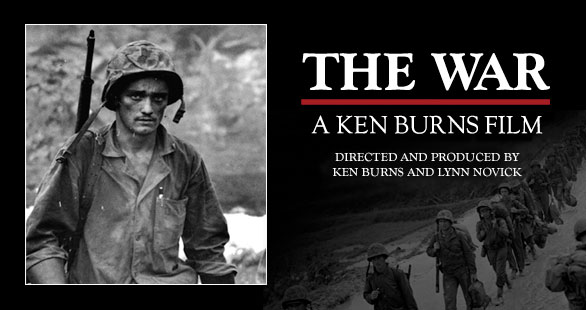Reading Hitler's War,
David Irving's massive, exhaustive study of WWII as seen from Hitler's
perspective, is riveting but spiritually exhausting. We will
never have a more sympathetic portrayal of Hitler and his motives, at
least not one consistent with the purely factual record, but what vapid
company the Führer turns out to be. Even the glamor of evil can't
redeem him and his henchmen from their utter banality, from the sheer
colossal mind-numbing stupidity of their fear of and paranoia about “world
Jewry”. As they grow in power their puny souls seem smaller and
smaller — consistent with the bunch of clever, fanatical, provincial
hacks they were. It will be to Germany's eternal shame that it
consented to be led in momentous times by such mediocre shadows of men.

A useful specific for the soul-sickness induced by Irving's book is Ken Burn's 15-hour documentary The War.
It's not without its passages of moral self-congratulation, but its
greatest value lies in its willingness to confront the darkness that
the war summoned up in the victors, especially in the young men who had
to fight it on the front lines. In the filmed interviews, the American combat
survivors — old men looking back on the war after more than half a
century — still tremble when they recall what they had to do, still seem
mystified that they could do it.
Like the Germans and the Japanese, the good guys in this war learned to
kill without mercy — even to kill defenseless civilians and unarmed
prisoners. And sometimes they experienced an exhilaration in
killing. The experience shook their souls and by the evidence
they never really got over it. The fact that they won a “good
war”, or a “necessary war” as one of them prefers to call it, didn't
heal the wounds within.
Hitler, and the Japanese warlords, sought to glorify the merciless
killing of war — sought to embrace it as a given of nature. The
soldiers of the great democracies may have recognized it as a given of
nature, but their refusal to glorify it, to accept it willingly as a part of who
they were, even in a just cause, makes for a startling contrast to
the supposed “realism” of a man like Hitler. It gives the heart a
little breathing space in a heartless world.
